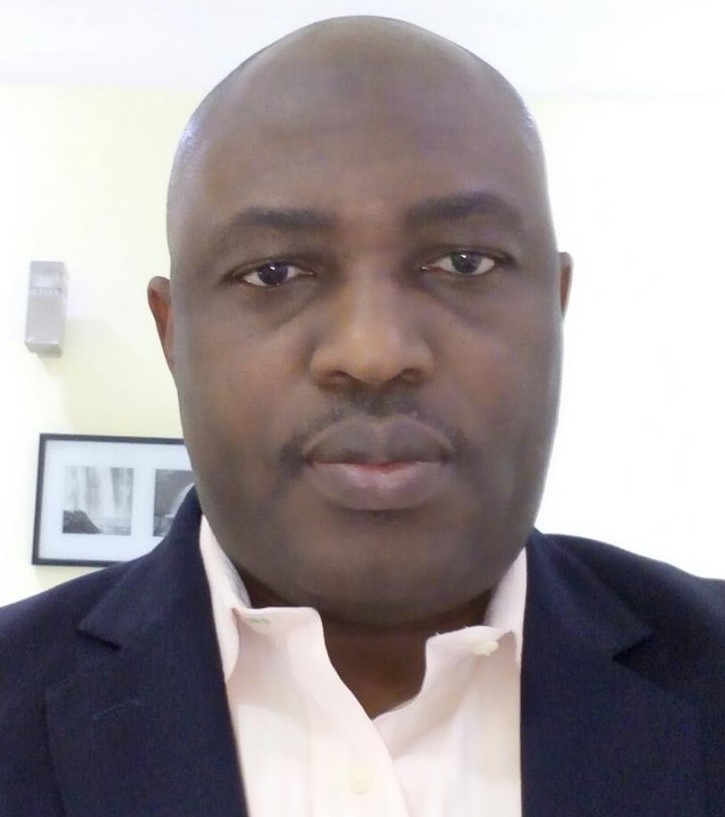By OLABODE OPESEITAN
Opening Salvo:
There is a peculiar madness in the way some Nigerians weaponize memory—remembering every perceived slight, yet forgetting every act of goodwill. Sam Amadi’s recent broadside against Lagos and the Yoruba people is a masterclass in this selective amnesia. It is a sermon of division draped in the robes of grievance, where half-truths masquerade as analysis and hyperbole substitutes for fact. But Nigeria’s fragile unity cannot survive on a diet of such intellectual dishonesty. Let us dissect this spectacle with the scalpel of reason—before the wounds it infects become fatal.
The Voting Disenfranchisement Myth: A Lie Taken Too Far
Amadi’s claim that “Igbos and those who looked like them were debarred from voting” in Lagos in the 2023 Governorship election is not just exaggerated—it is not supported by available evidence.
Fact Check:
– Yiaga Africa’s 2023 Election Report documented logistical issues (like late starts). It noted voter intimidation and violence in some polling stations but no systematic ethnic exclusion.
– Igbo-dominated areas (Amuwo-Odofin, Ojo) recorded high turnout. If these were ethnic suppression, why were polling units in these areas some of the busiest?
– INEC’s Data shows no statistically significant drop in Igbo voter participation compared to previous elections.
The Bigger Picture:
– Lagos has had Igbo lawmakers, key political appointees, and business leaders (more on this later). If the state were as hostile as claimed, how did Ben Akabueze (Igbo) serve as Commissioner for Economic Planning (2007–2015) under Fashola?
Charly Boy Bus Stop: Rewriting History to Fit a Grudge
Amadi frames the renaming as an anti-Igbo move. Let’s correct the record.
READ ALSO: Suspected kidnappers injure three Amotekun officers
– Original Name: Second Pedro Bus Stop.
– Controversy: The switch to “Charly Boy” was done without due process—no community consultation or legislative approval.
Why It Matters:
– If an Igbo-majority city like Onitsha renamed a landmark previously named after Shina Peters without input, would that be “Igbo oppression of Yoruba”? Or simply local governance realignment?
– The Lagos State Government has no policy against honouring non-Yoruba individuals. For instance, there are streets named after prominent South East and South South figures and landmarks, such as Sir Ezekiel Ainabe Road in Apapa, Mathias Okonkwo Street in Ilasamaja, Okonkwo Obiefuna Street and Onitsha Ado Street in Ikotun, and Solomon Okonkwo Street in Isheri Olofin, among several others.
Peter Obi’s Abacha Problem: When Accountability Equals “Tribalism”
Amadi dismisses scrutiny of Obi’s shifting stories as ethnic bias. This is gaslighting.
– The Contradiction:
– Obi in 2022 (Arise TV): “I never met Abacha.”
– Obi later admitted he met Abacha (Channels TV, July 2025) and was co-opted into a Port Decongestion Taskforce during Abacha’s regime.
– Logical Question: If any leading Yoruba politician made such inconsistent claims and he was called out by South East commentators, would Amadi label the criticism “Yoruba oppression”?
The Unspoken Reality: Igbo Success in Lagos
Amadi’s narrative erases the visible Igbo influence in Lagos’s politics and economy.
Political Representation:
– Chief Joe Igbokwe: Served as Lagos APC Spokesman and later as Special Adviser to Governor Sanwo-Olu.
– Ben Akabueze: Igbo Commissioner for Economic Planning (2007–2015).
Economic Power:
– Alaba International Market, Ladipo Auto Parts Hub—Igbo-dominated, thriving under Lagos’s government.
Social Benefits:
– Igbo students in Lagos enjoy equal access to state benefits, including WAEC fee payments by the Lagos State Government.
– Igbo civil servants work seamlessly alongside colleagues from other ethnic groups, enjoying the same rights and protections.
The Real Incendiary Rhetoric: Nnamdi Kanu’s 2020 Call for Arson
Fact Check:
– During EndSARS (2020), Nnamdi Kanu instructed IPOB supporters to “burn down Lagos” and target Yoruba businesses.
– Evidence: Archived Radio Biafra broadcasts (DSS and court proceedings listed the existence of the audio tape but Kanu’s lawyers disputed the claim).
Double Standard:
– Where was Amadi’s outrage when Kanu—a self-proclaimed Igbo leader—openly incited violence? Why is only one side’s rhetoric deemed “dangerous”?
Conclusion: The Folly of Perpetual Victimhood
Amadi’s article is a case study in ethnic demagoguery. It:
- Ignores facts (voter data, Igbo political appointments),
- Twists history (Charly Boy Bus Stop’s origins),
- Equates scrutiny with bigotry (Peter Obi’s inconsistencies),
- Silences extremist rhetoric from his own camp (Kanu’s Lagos arson calls).
Nigeria deserves better than this zero-sum tribalism. The Igbo community’s resilience in Lagos—from commerce to governance—proves that opportunity exists where grievance is discarded. Let us not be prisoners of the past when the future demands our collaboration.














